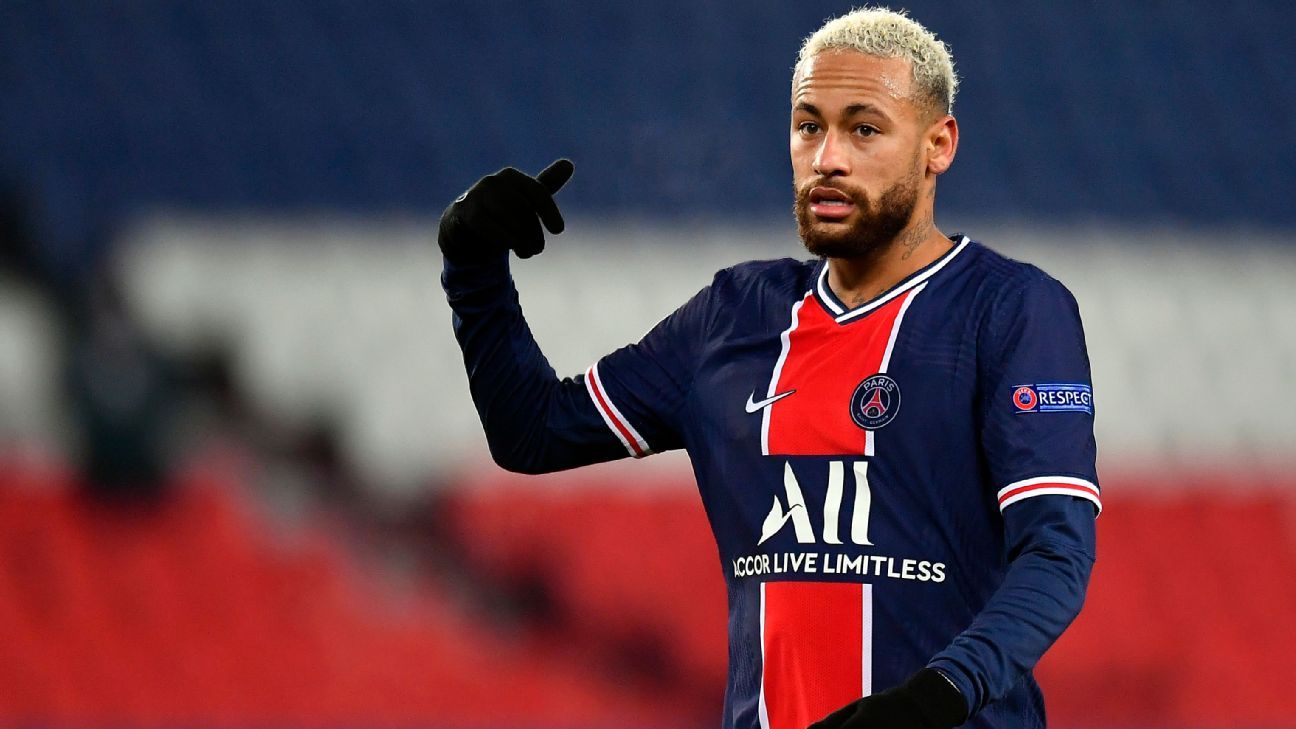Products You May Like
Neymar turns 29 in a few weeks. He should be at his peak as he enters a vital two-year period of his career, starting with shaking off his latest injury and ending with the 2022 World Cup and, with Brazil‘s hopes resting on his shoulders, a sixth title.
These two years will do much to establish his place in the game’s pantheon, though winning the World Cup and the Champions League is not the only objective. The era of Lionel Messi and Cristiano Ronaldo is drawing to a close. The throne of the world’s best player is up for grabs and Robert Lewandowski is unlikely to be a long-term candidate at 32 years old. By some measures, almost certainly including his own, Neymar’s career will have fallen short of potential if he’s unable to claim the honour for himself.
Some will surely (and understandably) see this as an exaggeration, a foolish trap of placing too much attention on a subjective individual award in a team sport. But Neymar is Brazilian and therefore, he grew up with the concept of the best player award as something of a national birthright. Romario, Ronaldo, Rivaldo, Ronaldinho, Kaka: it seemed a given that the outstanding Brazilian player would also be seen as the best in the world.
– Laurens: Pochettino’s first days as PSG manager
– Best soccer photos of 2020: Neymar’s tears, Liverpool’s glory
It may well be the case that the quest to claim this award is proving counter-productive, that there are moments when it adds too much pressure on him to shine. That certainly seemed the case in last year’s Champions League final, the biggest game he has ever played. It was striking that from the moment that Bayern Munich scored their goal, Neymar’s game collapsed. He was unable to help Paris Saint-Germain out of a 1-0 hole and, confronted with a crisis, couldn’t do the simple things to keep the ball ticking over. He looked like a man under too much pressure, and the events of the last few days may have cranked the pressure up another notch.
An obvious criticism that Neymar received after the Champions League final was not that he looked like a man under too much pressure, but that when push came to shove, he was still coming across as an adolescent. In subsequent months, the narrative shifted towards a new phenomenon: Neymar the adult. It was said that he had grasped a tough, but undeniable, truth: his career was finite and the time had come to make a difference. He was also widely praised for his leadership role when PSG and Istanbul Basaksehir walked off during their December Champions League clash following accusations of racism.
As Fernando Kallas, a Brazilian journalist based in Spain, put it in a recent social media post: “This week I was full of praise for the maturity of Neymar, the position he took against racism and how his image here in Europe is improving.” Kallas completed the post with an emoji of a hand slapping a head — a visual confession that he’d spoken too soon about the star forward.
The reason? The controversial festivities alleged to have been held by Neymar over a five-day period between Christmas and New Year. The Brazilian media reported that he was hosting a party for 500 people (thought it was claimed that the attendance was capped at 150) at his property in Mangaratiba, on the Rio de Janeiro coast, in the midst of a coronavirus pandemic that has been especially severe in Brazil. After a respite, the daily death toll in Brazil is once more around the 1,000 mark, and the grim overall figure will soon hurdle beyond 200,000. These are not times to hold a big party; even traditional New Year’s Eve celebrations were cancelled up and down the country out of concern for public safety.
The response was swift. “It hardly matters whether there are 500 or 150 at the party,” wrote SporTV journalist Mauricio Noriega, “What speaks louder is the attitude of someone who emulates a footballing Michael Jackson, stuck in a Neverland, isolated from the outside world and living like a star-struck adolescent.”
There may be extra bitterness in his words because Noriega was another who had recently praised Neymar. “I came across as a sucker a few days ago,” he noted, “when I wrote that he had emancipated himself as an athlete and a person when he took part in the protests” following that Champions League walkout.
Former midfielder Ze Elias, who spent a decade in Europe, sounded a similar note on Brazil’s ESPN TV channel.
“Neymar is the product of an environment that has been created for him from the start — a mentality of ‘This kid is a star, let him do what he wants.’ He grew up like that, he got used to it and no one stops him.” Reflecting on the internal repercussions, he said that “this is why Brazil will never be seen as a serious country.” There has been criticism from veteran TV commentator Galvao Bueno, while former-star-turned-pundit Walter Casagrande commented that Neymar “continues to be small in the things that really matter.”
If Neymar wants to grow into the boots of the world’s best player, he must now do it carrying a heavier load. There is now more pressure. Those who want to defend him find it harder to do so, while those who seek to attack have an extra motive. And hopefully the coronavirus death toll is left untouched by whatever took place in Mangaratiba.
